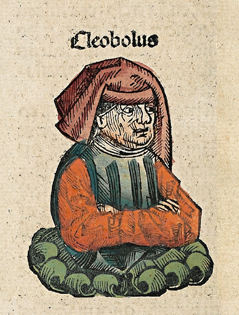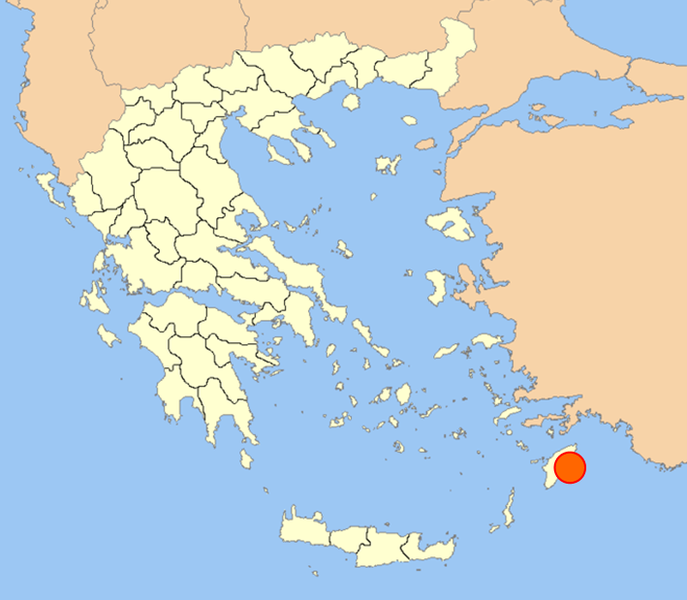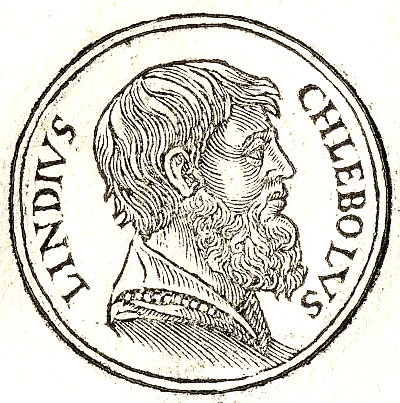<Back to Index>
- Poet Cleobulus of Lindos (Κλεόβουλος ο Λίνδιος), 6th Century B.C.
PAGE SPONSOR



Cleobulus (Greek: Κλεόβουλος; 6th century BC) was a Greek poet and a native of Lindos, and one of the Seven Sages of Greece.
Cleobulus was the son of Evagoras and a citizen of Lindus in Rhodes. Clement of Alexandria calls Cleobulus king of the Lindians, and Plutarch speaks of him as the tyrant. The letter quoted by Diogenes Laertius, in which Cleobulus invites Solon to Lindus as a democratic place of refuge from the tyrant Peisistratus in Athens, is undoubtably a later forgery. Cleobulus is also said to have studied "philosophy" in Egypt. He had a daughter named Cleobulina, who used to compose enigmas in hexameter verse, that were said to be of no less significance than his own. He is said to have lived to the age of seventy, and to have been greatly distinguished, for strength and beauty of person. There is a tomb of Cleobulus on Lindos.
Cleobulus apparently wrote lyric poems, as well as riddles in verse. Diogenes Laertius also ascribes to him the inscription on the tomb of Midas, of which Homer was considered by others to have been the author:
"I am a brazen maiden lying here
Upon the tomb of Midas. And as long
As water flows, as trees are green with leaves,
As the sun shines and eke the silver moon,
As long as rivers flow, and billows roar,
So long will I upon this much wept tomb,
Tell passers by, "Midas lies buried here."
Many sayings were attributed to him:
- "Ignorance and talkativeness bear the chief sway among men."
- "Cherish not a thought."
- "Do not be fickle, or ungrateful."
- "Be fond of hearing rather than of talking."
- "Be fond of learning rather than unwilling to learn."
- "Seek virtue and eschew vice."
- "Be superior to pleasure."
- "Instruct one's children."
- "Be ready for reconciliation after quarrels."
- "Avoid injustice."
- "Do nothing by force."
- "Moderation is the best thing."